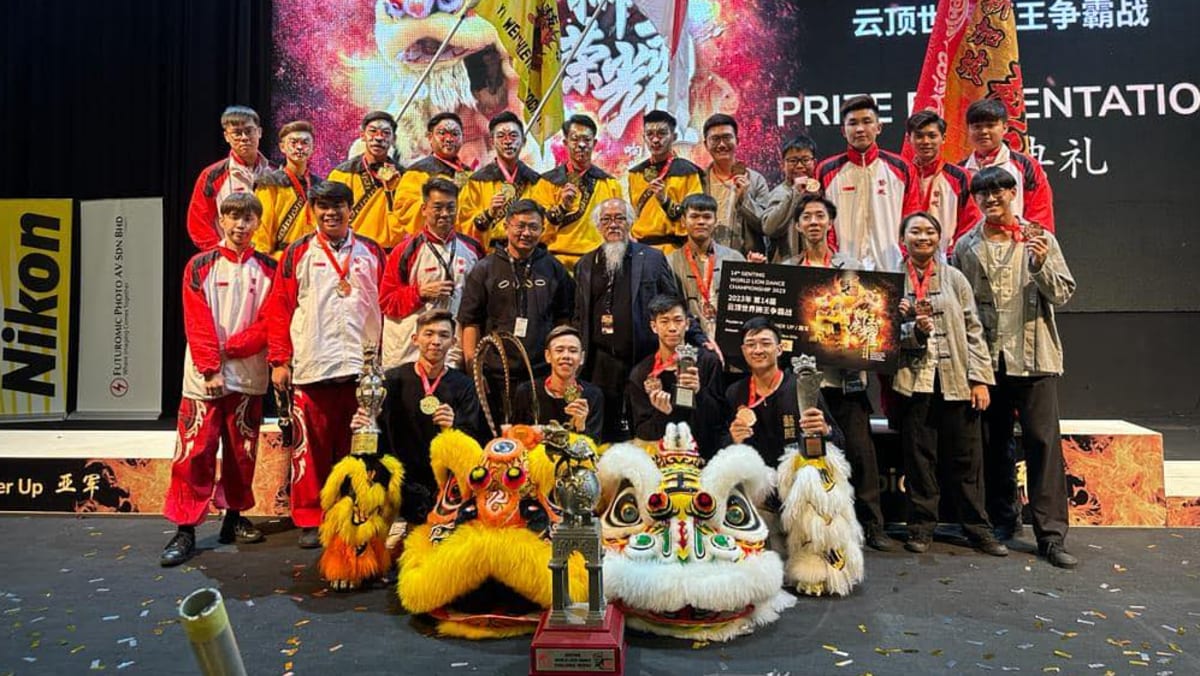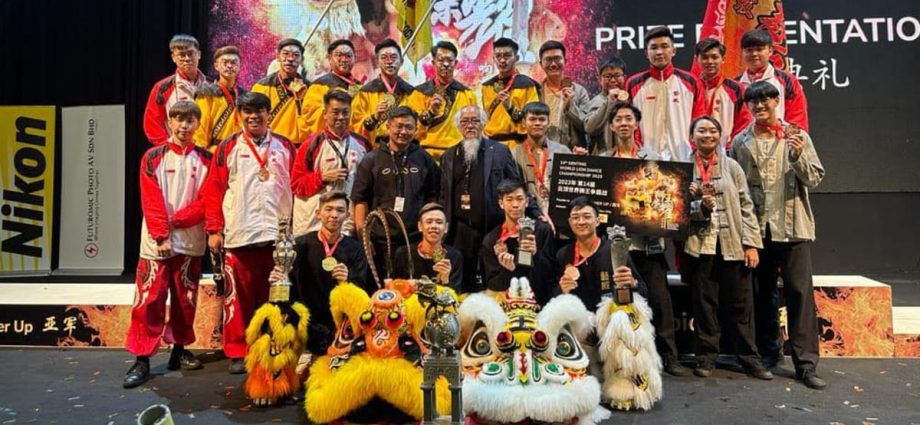
Aside from funding, the troupe is also finding it increasingly difficult to recruit new practitioners.
“I think (fewer) and (fewer) youngsters want to join lion dance because of other things like social media, they can play games instead of going through all these tiring trainings,” said Mr Tock.
The association is actively looking for new members as it is currently training four teams. The troupe has female participants, as well as members of different races, said Mr Teo.
However, recruitment campaigns have been met with lukewarm response.
“We see a decline in the number of people joining. Lion dance is a sport that we can’t force people to like,” he told CNA938.
“But what we can do is provide one of the best and optimal training grounds for people who really love lion dance.”
A TRADITIONAL ART FORM
The troupe uses plush toys and photo-taking sessions to interact with fans and drum up awareness for their sport.
Other teams have tried to give their performances a modern twist or inject their own cultural elements, but Mr Teo said the art form remains relatively traditional.
“Many countries have been trying to bring in their own culture. For example, Thailand or Japan like to include their instruments. But sometimes we may be restricted by the rules of the competition.”
In Genting, the troupe fielded two teams. It was not just their gravity-defying stunts on high stilts or creative manoeuvres that secured the win.
Marks also depend on techniques, artistic presentation and the expression of the lion, said Mr Teo.
“Every dance has a storyline. For example, before the lion gets to find its food or the “qing” (auspicious green lettuce usually part of the performance), it has to go through different obstacles, which may cause the lion to feel afraid … or feel happy once it gets its food,” he said.
The performers try to imitate real-life emotions and expressions such as happiness, drunkenness, and excitement, and bring them to life on their lion. These include batting the lion’s eyes, tilting its head, scratching its ears and wagging its tail.
The winning team secured 9.73 points while the other team placed third with 9.58 points.
But even after such a feat, the troupe is not going to take a break. Its lion dancers are going straight back to training for another competition in September.
Both Mr Tock and Mr Teo said they hope that following their win, the sport can attract more interest from Singaporeans, particularly the younger generation.
“We will continue our current efforts and train more teams. We hope that more people can join us and preserve our culture,” said Mr Teo.

